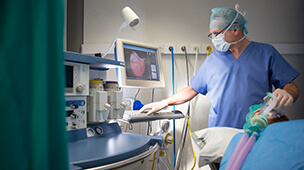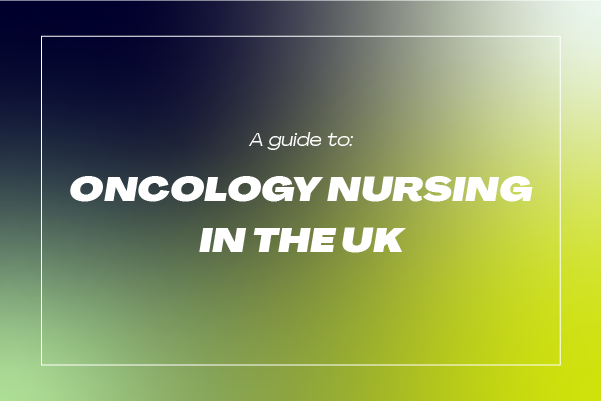Operating Department Practitioner may be a lengthy job title (so long that it needs to be abbreviated to ODP), but not many people outside of the healthcare industry know what they actually do and how their role differs to that of a nurse.
In this article, we’ll be taking a look at the role of an Operating Department Practitioner, their responsibilities in the operating department, and the main differences between an ODP career and a nursing career. Let’s start with a quick look at what ODPs and Nurses actually do…
The role of an Operating Department Practitioner Vs the role of a nurse
ODPs work as part of the operating department in hospitals alongside Surgeons, Anaesthetists, and Nurses. They are responsible for providing high levels of care to patients before, during, and after surgical procedures and operations. They also prepare and maintain sterile environments, especially in the operating theatre, hand surgical instruments to the surgeon, and monitor patients’ vital signs throughout surgeries.
As with any role based in the operating department, ODPs need to know how to respond quickly and effectively to emergency situations, maintaining a clear head and staying calm under pressure when patients’ lives are at stake.
Nurses, however, are required in a wider range of departments and have a much broader scope of practice than ODPs. With responsibilities including bedside patient care, medication administration, patient education, admin duties, and interdisciplinary team collaboration to name just a few of their many challenges, there is a clear definition between what’s needed of an Operating Department Practitioner and what’s needed of a nurse.
Clinical skills and specialisation - how do they differ?
ODPs have specialised clinical skills tailored to the work they perform in surgical settings, such as anaesthesia administration, operating room management, and knowledge of surgical instruments. Their training equips them with the expertise needed to handle complex surgical procedures and emergencies effectively.
In contrast, Nurses develop a diverse skill set encompassing clinical assessments, wound care, medication management, and patient advocacy, allowing them to provide holistic care across diverse patient populations and healthcare settings.
Both ODPs and Nurses can choose to specialise in a certain area of practice. However, the scope of specialties is far broader for Nurses.
Comparing education and training
Becoming an Operating Department Practitioner typically involves completing a specialised training course or degree programme that focuses on perioperative care and surgical techniques. ODPs undergo rigorous training to become proficient in sterile techniques, anaesthesia administration, and handling surgical tools.
Nursing careers, on the other hand, offer various entry points, including associate's, bachelor's, and master's degree programmes, with coursework covering anatomy, physiology, pharmacology, and nursing practice across the lifespan.
Both careers involve high levels of training to become fully qualified and continued professional development throughout in order to stay qualified and safe to provide care to the general public.
How do both careers compare when it comes to team collaboration and patient care?
It’s safe to say that both careers are essential parts of the patient care journey. They both prioritise patient safety and optimise outcomes through effective teamwork and collaboration with other healthcare staff.
However, there are some key differences to take into consideration. Firstly, the types of healthcare workers each professional works with. ODPs typically collaborate on a daily basis with the operating department team, which includes Surgeons, Anasethetists, Scrub Nurses, Recovery Nurses, and Sterile Technicians. Their collaboration ensures a smooth, safe, and seamless set of procedures for that day’s patients.
Nurses, however, will collaborate with Doctors, Nurse Practitioners, Allied Health Professionals, and support staff to deliver comprehensive and compassionate care to patients throughout a broad spectrum of departments.
What career advancement opportunities are there for both ODPs and Nurses?
Becoming a qualified healthcare professional in any form is a huge achievement, but it’s only natural to want career progression. Operating Department Practitioners (ODPs) have opportunities for career advancement through specialisation in areas such as trauma surgery, cardiac surgery, or neurosurgery, as well as pursuing leadership roles in perioperative management or education.
Nursing careers offer diverse advancement pathways, including specialisation in areas such as critical care, oncology, paediatrics, or advanced practice roles such as nurse practitioner or nurse educator.
Thankfully, neither role is stuck in one place with no chance to progress. Progression in either career takes additional training and plenty of experience. Depending on the employer, career progression often comes with additional benefits such as a higher salary, team leadership, and more responsibility within the team.
In conclusion?
So, to sum up, while both Operating Department Practitioners and nursing careers share a common goal of providing high-quality patient care, they differ in their focus, responsibilities, and areas of specialisation within the healthcare landscape. Understanding these distinctions is essential for anyone considering a career in healthcare and for healthcare organisations striving to optimise teamwork and collaboration across disciplines.
Speak to Your World about your next ODP or nursing role
Your World Nursing has been working closely with ODPs and Nurses for nearly two decades. As a preferred supplier to the NHS and a trusted provider to the private sector, we have a wide range of roles available nationwide.
View our current ODP jobs and nursing vacancies today or get in touch and speak to a member of our friendly team directly.












